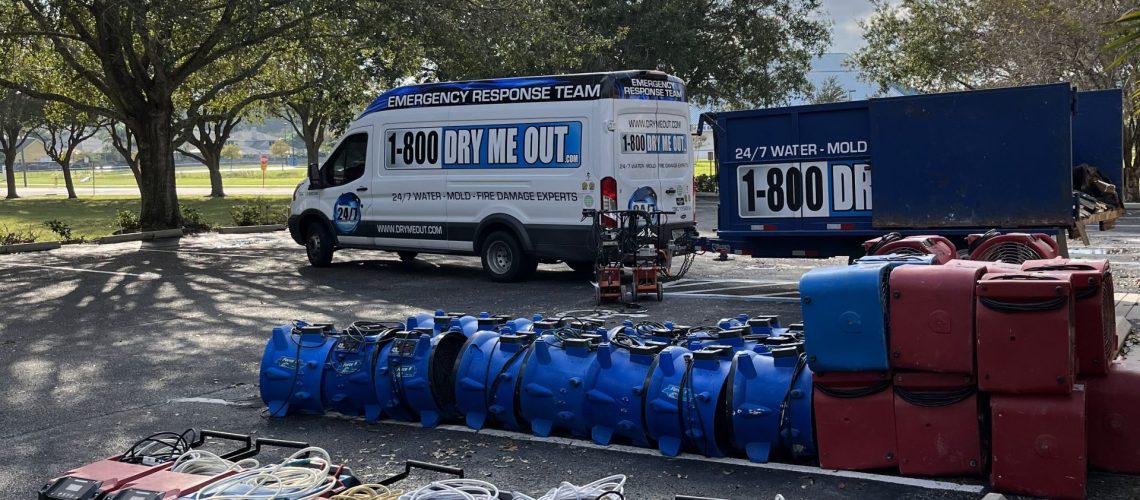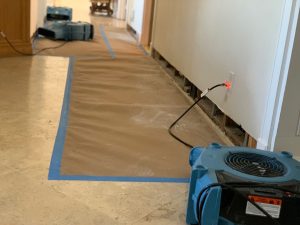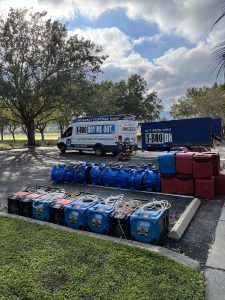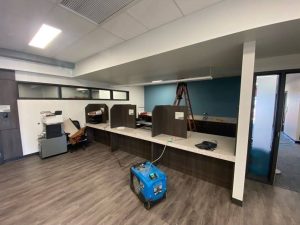At Dry Me Out, we get this question a lot: “Does water damage get worse over time?” And the short answer is—absolutely, yes. In fact, the longer water damage is left unaddressed, the more serious and costly the problem can become.
Water damage isn’t something that just dries up on its own and disappears. Whether it’s from a burst pipe, a slow leak behind your wall, or flooding from a storm, that moisture sticks around, and it can wreak havoc on your home’s structure, safety, and air quality. Let’s break down what really happens when water damage is left untreated, why it gets worse over time, and what you can do to stop it in its tracks.
Key Takeaways
- Yes, water damage definitely gets worse over time. The longer it’s left untreated, the more damage it causes physically, financially, and to your health.
- Mold can grow in as little as 24 hours, making quick action critical.
- Water damage compromises structure, air quality, and safety, especially when it seeps into walls, floors, and electrical systems.
- Professional restoration is the safest, most effective way to handle water damage and prevent long-term consequences.
- Acting quickly not only saves money, but also gives you the best chance to fully restore your home.
How Water Damage Starts
Most water damage starts with something small, like a tiny leak under the sink or some minor flooding after a heavy rain. In some cases, you may not even notice the damage right away. Water can seep into walls, flooring, ceilings, and insulation without leaving behind any obvious signs, silently soaking into materials and creating the perfect environment for bigger problems to develop.
The key thing to understand is that water follows the path of least resistance. If there’s a crack, gap, or porous material, the water will find it. And once it’s inside, it can start to spread quickly.
The Timeline of Water Damage- How Long Does It Take For The Damage to Spread?
Here’s what typically happens if water damage isn’t handled quickly:
Within Minutes to Hours:
- Water begins to spread into surrounding materials.
- Porous surfaces like drywall, insulation, and wood start absorbing moisture.
- Paint may begin to bubble or peel.
- Items like rugs, furniture, and paper goods start to absorb water and can quickly become unsalvageable.
Within 24-48 Hours:
- Mold begins to grow. It can take as little as 24 hours for mold spores to develop on damp surfaces.
- Wood begins to swell and warp.
- Drywall softens and may start to disintegrate.
- Musty odors become noticeable.
- Metal surfaces may begin to rust.
After 1 Week:
- Mold growth becomes widespread and difficult (and expensive) to remove.
- Structural damage becomes a serious concern. Water weakens floors, walls, and ceilings.
- Electrical systems may be compromised, creating fire and shock hazards.
- The air quality in your home declines significantly and starts to affect those within the space, especially people with asthma, allergies, or other respiratory conditions.
After Several Weeks:
- Severe mold contamination and possible health risks.
- Major structural repairs may be needed.
- Damage can spread to areas that were initially unaffected.
- Restoration becomes significantly more expensive and time-consuming.
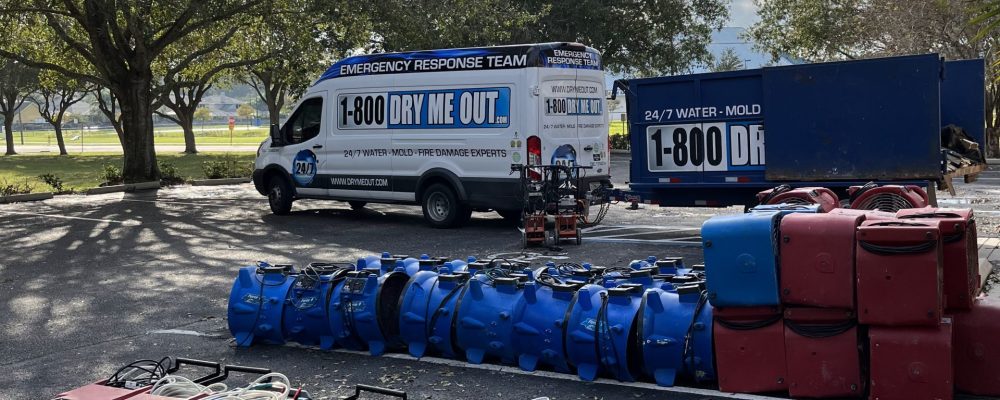
The Hidden Dangers of Delaying Repairs
At Dry Me Out, we’ve seen firsthand how hidden water damage can quietly destroy a home. The longer it sits, the more complicated the repair becomes. Here are some of the biggest dangers of letting water damage go unchecked:
1. Mold Growth
This is one of the most immediate concerns. Mold isn’t just ugly, it’s also a serious health hazard. It can trigger allergies, asthma attacks, and respiratory issues. And once mold takes hold, it can be tough to remove without professional remediation.
2. Structural Weakness
Waterlogged wood becomes soft, warped, or even rotted. That includes support beams, subfloors, wall studs, and more. Over time, this compromises the structural integrity of your home.
3. Electrical Hazards
Water and electricity do not mix. Water damage can reach electrical wiring and outlets, creating a fire or shock risk. If you suspect water has gotten into your electrical system, don’t take any chances, shut off power and call a pro.
4. Declining Indoor Air Quality
As moisture lingers, so does the damp, musty smell. More importantly, mold spores, bacteria, and other airborne pollutants thrive in a wet environment. This can make your home feel uncomfortable and even make you sick.
5. Pest Infestation
Many pests like insects and rodents, are drawn to dark, damp environments. Unchecked water damage may invite unwanted guests like termites, ants, or even rats.
Why Fast Action Makes a Big Difference
The good news is, the sooner you act, the easier it is to restore your property and the more damage you can prevent.
At Dry Me Out, we specialize in fast, thorough water extraction, drying, and restoration. Our goal is to minimize the disruption to your life while preventing long-term issues. Here’s why fast action is so critical:
- Lower costs: Water damage restoration is much cheaper when it’s done early. The longer you wait, the more materials need to be replaced, and the higher the labor costs.
- Better outcomes: The faster we can dry out your property, the more likely we are to save flooring, drywall, furniture, and personal items.
- Fewer health risks: Prompt drying prevents mold growth and air quality issues, keeping your family healthier and safer.
What to Do If You Suspect Water Damage
If you notice any signs of water damage, like water stains, damp spots, moldy smells, warped flooring, or peeling paint, don’t wait. Here’s what you should do:
- Stop the source: If possible, shut off the water supply or patch the leak.
- Call a professional: Contact a water damage restoration expert like Dry Me Out immediately.
- Document the damage: Take photos and keep notes. This will be helpful when filing an insurance claim.
- Avoid DIY drying: Fans and dehumidifiers help, but they usually aren’t enough. Water can hide behind walls and under floors.
- Leave cleanup to the pros: We use industrial-grade drying equipment and moisture detection tools to ensure no water is left behind.
Prevention Tips: Keep Water Damage from Getting Worse
The best way to deal with water damage is to stop it before it starts. Here are a few prevention tips:
- Fix leaks immediately, no matter how small they seem.
- Install a sump pump and backflow valve if your area is prone to flooding.
- Keep gutters and downspouts clear to prevent water from pooling near your foundation.
- Inspect your roof regularly for missing or damaged shingles.
- Use water leak detectors near appliances and in basements.
At Dry Me Out, we’ve seen it all and we know how important it is to act fast. Water damage doesn’t wait, and neither should you. If you suspect that you might have water damage, don’t put it off. Give us a call and let’s get your home dried out, cleaned up, and back to normal before things get worse.
Let’s take care of that water damage. Call us today to get started.

